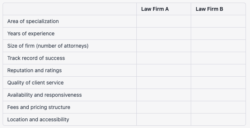Healthcare and Insurance Giants Face Massive Privacy Breaches
In an era dominated by digital information, recent cyberattacks have exposed the vulnerability of healthcare and insurance giants, leading to severe privacy breaches. Major players like Prospect Medical Holdings, SIHF Healthcare, and State Farm, among others, are now grappling with potential class-action lawsuits. These incidents underscore the critical need for robust cybersecurity measures and raise pressing concerns about privacy standards in these vital industries.

Prospect Medical Holdings Cyberattack
In a significant breach of trust, Prospect Medical Holdings, Inc. fell victim to a cyberattack in August 2023, compromising the private data of countless employees and patients. This attack echoes the consequences of the SIHF healthcare privacy violation, revealing an alarming trend in data security within the medical industry. The implications of the Prospect Medical Holdings cyberattack are far-reaching. The compromised data not only presents potential financial damage to affected individuals but also erodes trust in the healthcare provider's ability to safeguard sensitive patient information. Moreover, the legal repercussions are significant, with class action lawsuits seeking compensation for the breach. This incident underscores the urgent need for stringent cybersecurity measures within the healthcare sector to prevent future privacy violations.
Lawsuits Against Prospect Medical Holdings
Continually, the fallout from the Prospect Medical Holdings cyberattack escalates as class action lawsuits materialize, demonstrating the serious legal consequences for failing to adequately protect sensitive personal data. The legal action against Prospect Medical Holdings is centered on the allegation of negligence, as the company failed to secure the private data of its employees and patients. This breach resulted in the exposure of personal and medical information, causing significant distress to the affected individuals. Similarly, the consequences of SIHF privacy violation are severe, with its own class action lawsuit alleging violation of Illinois privacy law. The complaints highlight the urgent need for healthcare and insurance giants to prioritize cybersecurity to prevent such breaches, as the cost, both financially and reputationally, can be immense.
SIHF Healthcare Privacy Violation
A significant privacy violation has emerged within SIHF Healthcare, prompting a class action lawsuit due to alleged breaches of Illinois privacy law. The impact of this privacy violation is vast, affecting both employees and patients whose sensitive data was improperly handled. This breach has triggered serious consequences, not only for those directly affected but also for the reputation and financial stability of SIHF Healthcare. The consequences of such data breaches are far-reaching, with victims at risk of identity theft and other forms of exploitation. Beyond the immediate victims, these incidents shake public trust in healthcare institutions' ability to safeguard personal information. The lawsuit against SIHF Healthcare aims to redress these violations and underscore the importance of stringent data protection measures.
Class Action Against SIHF Healthcare
While SIHF Healthcare is grappling with the fallout from their privacy violation, they are now also facing a class action lawsuit that asserts their failure to adequately protect sensitive employee and patient data. The class action outcome could lead to considerable financial penalties and reputational damage, thereby amplifying the privacy breach consequences.
| Issue | Impact |
|---|---|
| Class action lawsuit | Financial penalties, Reputational damage |
| Privacy violation | Potential identity theft, loss of trust |
The breach has raised serious questions about SIHF's data security measures. If successful, the lawsuit could set a precedent for future class actions against healthcare organizations failing to protect sensitive data. The case underscores the critical importance of robust data security in an era of escalating cyber threats.
State Farm's Data Breach
In the realm of insurance, State Farm's recent data breach has emerged as a profound example of privacy violation, with hackers successfully accessing and stealing 400 million records in August 2023. The breach has profound implications for the company and its customers. These include:
- State Farm's Response:
- The company notified the affected customers promptly
- A dedicated team was formed to investigate the breach and fortify the security system
- Consequences of the Breach:
- Loss of customers' trust leading to a potential decline in business
- A proposed class-action lawsuit, seeking compensation for the victims
The incident underscores the need for robust cybersecurity measures in the insurance sector to prevent such breaches and protect sensitive customer data.
Legal Action Against State Farm
Following the massive data breach, State Farm is now facing a proposed class action lawsuit, brought forward by the victims who had their personal information compromised. The class action against State Farm alleges negligence and failure to protect customer data, thus violating privacy laws. The consequences of data breaches are far-reaching, potentially leading to identity theft, financial loss, and reputational damage for victims. As such, plaintiffs are seeking compensation for their losses and stronger data security measures to prevent future breaches. The case underscores the dire need for stringent cybersecurity in the insurance sector. It also serves as a stark reminder of the potential legal repercussions that companies can face when they fail to safeguard customer data.
Francescas Data Breach Details
The Francescas data breach, a significant cybersecurity incident, compromised the personal information of numerous current and former employees and customers in January 2023. The impact of Francescas breach was substantial, leading to privacy violations and leaving the affected individuals vulnerable to potential fraud and identity theft.
- Impact of Francescas Breach:
- Massive exposure of sensitive personal data
- Heightened risk of identity theft for affected individuals
- Damage to Francescas' reputation and customer trust
- Consequences of Privacy Violations:
- Legal repercussions - Francescas is facing a class action lawsuit
- Financial costs - potential compensation for the victims
- Increased scrutiny from regulatory bodies
The case serves as a stark reminder of the looming cybersecurity threats in the healthcare and insurance sectors, and the severe consequences of privacy violations.
Class Action Lawsuit Against Francescas
Francescas, a renowned retail company, is now the defendant in a class action lawsuit due to the massive data breach compromising the personal information of its employees and customers. The lawsuit alleges negligence in implementing adequate security measures against cyberattacks.
| Issue | Details |
|---|---|
| Data Breach | Occurred early 2023 |
| Consequences | Personal data of customers and employees exposed |
| Class Action Lawsuit | Seeking compensation for victims |
The Francescas data breach consequences have been far-reaching, affecting not only their reputation but also the trust of their customers and employees. The class action lawsuit serves as a cautionary tale for other companies to prioritize data security and prevent such breaches from happening in the future.
Lifeline Systems Cyberattack
Uncovered in August 2022, a significant cyberattack on Lifeline Systems Company resulted in the compromise of approximately 74,000 individuals' personal data, leading to a class action lawsuit against the organization. The impact of Lifeline Systems cyberattack was profound, with both patients and employees reeling from the invasion of their privacy.
- Consequences for Lifeline Systems Company:
- Legal repercussions: A class-action lawsuit was initiated, seeking compensation for the affected individuals.
- Reputational damage: The incident significantly tarnished the company's reputation, leading to a loss of trust among clients and stakeholders.
This episode underscores the crucial importance of robust cybersecurity measures in healthcare institutions, where sensitive data is routinely handled. The Lifeline Systems cyberattack serves as a warning to all healthcare and insurance giants about the perils of inadequate data protection.
Lawsuit Faced by Lifeline Systems
In light of the substantial cyberattack on Lifeline Systems Company, a class action lawsuit has been filed, demanding accountability from the company for its failure to protect sensitive customer data. This lawsuit impact is severe, as it could potentially lead to financial repercussions and a tarnished reputation.
The data breach consequences are grave, with approximately 74,000 customers' personal data compromised. This event underpins the urgency for organizations to fortify their cybersecurity measures.
| Lawsuit Impact | Data Breach Consequences |
|---|---|
| Financial Repercussions | Personal Data Compromised |
| Tarnished Reputation | Urgency for Enhanced Cybersecurity |
| Potential for Stringent Regulations | Eroded Customer Trust |
The lawsuit serves as a stark reminder for corporations to prioritize data security to avoid similar breaches and the resultant legal consequences.
Impact of Healthcare & Insurance Breaches
Following the numerous breaches within the healthcare and insurance industries, the impact of these privacy violations is vast and multifaceted, leading to significant financial, reputational, and regulatory consequences.
- Financial Impact:
- Companies face substantial costs in settling lawsuits and upgrading data security measures.
- Consumers bear the brunt of identity theft and fraud.
- Reputational Damage:
- Trust in companies is eroded, affecting customer loyalty and market share.
- Public image suffers, impacting stock prices and investor confidence.
The consumer implications are profound, with personal data at risk and the potential for identity theft high. Despite advancements in data security measures, breaches continue, highlighting the need for better protection strategies and stricter regulations within these industries.
Seeking Compensation for Breaches
As victims of the privacy breaches navigate the consequences, they are increasingly turning to legal avenues for compensation. Filing class-action lawsuits has become a common recourse for those seeking compensation for data breaches. These lawsuits aim not only to provide remuneration for the victims but also to hold responsible entities accountable for the consequences of privacy violations. The lawsuits argue that these healthcare and insurance giants failed to adequately safeguard personal information, leading to large-scale data breaches. This negligence has resulted in significant emotional distress and potential financial harm for the victims. Thus, the lawsuits underscore a critical demand: for companies to prioritize data protection and to compensate those affected when they fail to do so.
Accountability for Privacy Negligence
Why then, given the increasing number of data breaches and the resulting harm to individuals, have these healthcare and insurance giants not taken stronger measures to protect private data? The answer lies in a lack of adequate accountability for privacy negligence.
- Data protection measures:
- Practices such as encryption, two-factor authentication, and regular system updates can shield private information.
- A proactive approach is needed to foresee potential loopholes and fortify security measures.
- Consequences of privacy breaches:
- Legal repercussions including hefty fines and lawsuits.
- A tarnished reputation leading to loss of customer trust and reduced business.
In essence, these corporations must prioritize data security. Holding them accountable for privacy negligence would not only deter carelessness but also motivate the implementation of robust data protection measures.
Personal Information Compromised
The compromise of personal information in these data breaches exposes millions of individuals to potential identity theft, financial loss, and emotional distress. The long term consequences of personal information compromise can be far-reaching, affecting the victims' credit ratings, employment prospects, and even their personal relationships.
| Data Breach | Consequence |
|---|---|
| Identity Theft | Financial Loss |
| Credit Rating Damage | Employment Prospects |
| Personal Relationships | Emotional Distress |
To prevent future privacy breaches in healthcare and insurance industries, robust cyber security measures need to be implemented. These include encryption of personal data, regular security audits, and employee training on data protection. Furthermore, regulatory bodies must enforce stricter penalties for breaches to deter negligence and ensure the privacy and security of consumer data.
Ongoing Class Action Lawsuits
Numerous class action lawsuits are currently underway, launched by the victims of these privacy breaches in a bid to seek justice and compensation for the compromising of their personal information.
- The lawsuits underscore the importance of robust cybersecurity measures in the healthcare and insurance sectors. Several cases highlight the need for proposed legislation to enforce stricter data protection guidelines:
- Prospect Medical Holdings and SIHF Healthcare are facing lawsuits due to inadequate protection of private data.
- State Farm, facing a proposed class action, had 400 million records stolen by hackers.
- Francescas and Lifeline Systems Company are under scrutiny for failing to guard employee and customer data.
These ongoing lawsuits push for accountability, financial redress, and improved data protection standards.
Frequently Asked Questions
How Are These Companies Enhancing Their Cybersecurity Measures Following These Breaches?
In response to the breach impact, companies are increasingly investing in cybersecurity innovations. They are adopting advanced encryption methods, multi-factor authentication, and regular updates to their software systems. Moreover, they are also conducting regular cybersecurity audits and employee training to mitigate future risks. These measures aim to enhance their data protection strategies, ensuring the privacy and security of their clients' personal information.
What Steps Are Being Taken to Prevent Such Data Breaches in the Future?
In the wake of these breaches, firms are bolstering their defenses by implementing advanced data encryption methods and strengthening breach notification protocols. By encrypting data, they are locking their 'digital doors' to unauthorized access. These measures are akin to a ship captain patching holes and reinforcing the hull after a storm, ensuring the vessel is more resilient against future tempests. The aim is to prevent similar breaches, safeguarding sensitive information from falling into the wrong hands.
How Can Individuals Protect Themselves From Potential Harm Due to Such Data Breaches?
Individuals can protect themselves from potential harm due to data breaches by employing personal encryption methods. This includes secure passwords, two-factor authentication, and encrypted communication platforms. Regular monitoring of financial and personal accounts can also help detect identity theft consequences early. It's also advisable to be cautious when sharing personal information and understand the data policies of companies they interact with. Additionally, utilizing identity theft protection services can add an extra layer of security.
What Are the Long-Term Implications of Such Privacy Breaches for the Healthcare and Insurance Sectors?
Long-term implications of such privacy breaches are profound. Not unlike a domino effect, they lead to a cascade of challenges including loss of trust, regulatory scrutiny, and post-breach litigation. Breach impact analysis reveals potential decline in market share, revenue, and reputation. Moreover, they necessitate heavy investment in cybersecurity measures, data protection practices, and training. Essentially, these breaches can transform the business landscape, compelling the healthcare and insurance sectors to prioritize data privacy or face dire consequences.
Are There Any Governmental Policies or Regulations Being Implemented to Prevent Such Privacy Breaches in the Future?
In response to growing cybersecurity threats, policy evolution and regulatory impact are increasingly crucial. Governments worldwide are implementing stringent regulations to prevent future privacy breaches. These include data protection acts and cybersecurity frameworks, which mandate organizations to bolster their data security measures. Non-compliance can result in hefty fines, thereby incentivizing companies to prioritize data protection. This strategic shift towards enhanced digital security aims to safeguard sensitive information from potential cyber threats.

This post has been generated by AI and was not reviewed by editors. This is Not legal advice. Please consult with an attorney.




